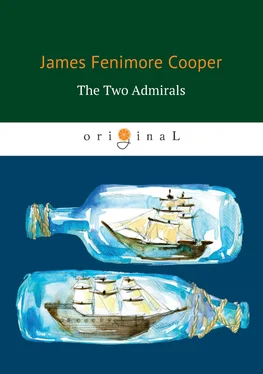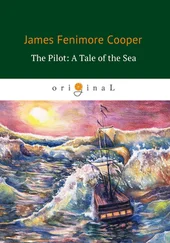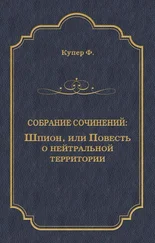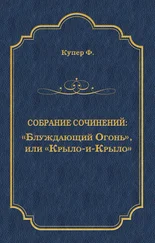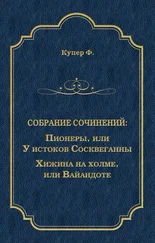Джеймс Фенимор Купер - The Two Admirals
Здесь есть возможность читать онлайн «Джеймс Фенимор Купер - The Two Admirals» — ознакомительный отрывок электронной книги совершенно бесплатно, а после прочтения отрывка купить полную версию. В некоторых случаях можно слушать аудио, скачать через торрент в формате fb2 и присутствует краткое содержание. Город: Москва, Год выпуска: 2018, ISBN: 2018, Жанр: Исторические приключения, Прочие приключения, literature_19, Морские приключения, на английском языке. Описание произведения, (предисловие) а так же отзывы посетителей доступны на портале библиотеки ЛибКат.
- Название:The Two Admirals
- Автор:
- Жанр:
- Год:2018
- Город:Москва
- ISBN:978-5-521-06651-3
- Рейтинг книги:3 / 5. Голосов: 1
-
Избранное:Добавить в избранное
- Отзывы:
-
Ваша оценка:
- 60
- 1
- 2
- 3
- 4
- 5
The Two Admirals: краткое содержание, описание и аннотация
Предлагаем к чтению аннотацию, описание, краткое содержание или предисловие (зависит от того, что написал сам автор книги «The Two Admirals»). Если вы не нашли необходимую информацию о книге — напишите в комментариях, мы постараемся отыскать её.
The Deerslayer
The Two Admirals — читать онлайн ознакомительный отрывок
Ниже представлен текст книги, разбитый по страницам. Система сохранения места последней прочитанной страницы, позволяет с удобством читать онлайн бесплатно книгу «The Two Admirals», без необходимости каждый раз заново искать на чём Вы остановились. Поставьте закладку, и сможете в любой момент перейти на страницу, на которой закончили чтение.
Интервал:
Закладка:
“Not quite. A person of the half-blood may be as legitimate as the king’s majesty; whereas, a nullius is of no blood. Now, suppose for a moment, Sir Wycherly, that you had been a son by a first wife, and I had been a son by a second – would there have been no relationship between us?”
“What a question, Tom, to put to your own brother!”
“But I should not be your own brother, my good sir; only your half brother; of the half , and not of the whole blood.”
“What of that – what of that? – your father would have been my father – we would have had the same name – the same family history – the same family feelings – poh! poh! – we should have been both Wychecombes, exactly as we are to-day.”
“Quite true, and yet I could not have been your heir, nor you mine. The estate would escheat to the king, Hanoverian or Scotchman, before it came to me. Indeed, to me it could never come.”
“Thomas, you are trifling with my ignorance, and making matters worse than they really are. Certainly, as long as you lived, you would be my heir!”
“Very true, as to the £20,000 in the funds, but not as to the baronetcy and Wychecombe. So far as the two last are concerned, I am heir of blood, and of entail, of the body of Sir Wycherly Wychecombe, the first baronet, and the maker of the entail.”
“Had there been no entail, and had I died a child, who would have succeeded our father, supposing there had been two mothers?”
“I, as the next surviving son.”
“There! – I knew it must be so!” exclaimed Sir Wycherly, in triumph; “and all this time you have been joking with me!”
“Not so fast, brother of mine – not so fast. I should be of the whole blood, as respected our father, and all the Wychecombes that have gone before him; but of the half -blood, as respected you . From our father I might have taken, as his heir-at-law: but from you , never, having been of the half -blood.”
“I would have made a will, in that case, Thomas, and left you every farthing,” said Sir Wycherly, with feeling.
“That is just what I wish you to do with Sir Reginald Wychecombe. You must take him; a filius nullius , in the person of my son Tom; a stranger; or let the property escheat; for, we are so peculiarly placed as not to have a known relative, by either the male or female lines; the maternal ancestors being just as barren of heirs as the paternal. Our good mother was the natural daughter of the third Earl of Prolific; our grandmother was the last of her race, so far as human ken can discover; our great-grandmother is said to have had semi-royal blood in her veins, without the aid of the church, and beyond that it would be hopeless to attempt tracing consanguinity on that side of the house. No, Wycherly; it is Sir Reginald who has the best right to the land; Tom, or one of his brothers, an utter stranger, or His Majesty, follow. Remember that estates of £4000 a year, don’t often escheat, now-a-days.”
“If you’ll draw up a will, brother, I’ll leave it all to Tom,” cried the baronet, with sudden energy. “Nothing need be said about the nullius ; and when I’m gone, he’ll step quietly into my place.”
Nature triumphed a moment in the bosom of the father; but habit, and the stern sense of right, soon overcame the feeling. Perhaps certain doubts, and a knowledge of his son’s real character, contributed their share towards the reply.
“It ought not to be, Sir Wycherly,” returned the judge, musing, “Tom has no right to Wychecombe, and Sir Reginald has the best moral right possible, though the law cuts him off. Had Sir Michael made the entail, instead of our great-grandfather, he would have come in, as a matter of course.”
“I never liked Sir Reginald Wychecombe,” said the baronet, stubbornly.
“What of that? – He will not trouble you while living, and when dead it will be all the same. Come – come – I will draw the will myself, leaving blanks for the name; and when it is once done, you will sign it, cheerfully. It is the last legal act I shall ever perform, and it will be a suitable one, death being constantly before me.”
This ended the dialogue. The will was drawn according to promise; Sir Wycherly took it to his room to read, carefully inserted the name of Tom Wychecombe in all the blank spaces, brought it back, duly executed the instrument in his brother’s presence, and then gave the paper to his nephew to preserve, with a strong injunction on him to keep the secret, until the instrument should have force by his own death. Mr. Baron Wychecombe died in six weeks, and the baronet returned to his residence, a sincere mourner for the loss of an only brother. A more unfortunate selection of an heir could not have been made, as Tom Wychecombe was, in reality, the son of a barrister in the Temple; the fancied likeness to the reputed father existing only in the imagination of his credulous uncle.
Chapter II
“How fearful
And dizzy ‘tis, to cast one’s eyes so low!
The crows, and choughs, that wing the midway air,
Show scarce so gross as beetles! Half-way down
Hangs one that gathers samphire! dreadful trade!”
This digression on the family of Wychecombe has led us far from the signal-station, the head-land, and the fog, with which the tale opened. The little dwelling connected with the station stood at a short distance from the staff, sheltered, by the formation of the ground, from the bleak winds of the channel, and fairly embowered in shrubs and flowers. It was a humble cottage, that had been ornamented with more taste than was usual in England at that day. Its whitened walls, thatched roof, picketed garden, and trellised porch, bespoke care, and a mental improvement in the inmates, that were scarcely to be expected in persons so humbly employed as the keeper of the signal-staff, and his family. All near the house, too, was in the same excellent condition; for while the head-land itself lay in common, this portion of it was enclosed in two or three pretty little fields, that were grazed by a single horse, and a couple of cows. There were no hedges, however, the thorn not growing willingly in a situation so exposed; but the fields were divided by fences, neatly enough made of wood, that declared its own origin, having in fact been part of the timbers and planks of a wreck. As the whole was whitewashed, it had a rustic, and in a climate where the sun is seldom oppressive, by no means a disagreeable appearance.
The scene with which we desire to commence the tale, opens about seven o’clock on a July morning. On a bench at the foot of the signal-staff, was seated one of a frame that was naturally large and robust, but which was sensibly beginning to give way, either by age or disease. A glance at the red, bloated face, would suffice to tell a medical man, that the habits had more to do with the growing failure of the system, than any natural derangement of the physical organs. The face, too, was singularly manly, and had once been handsome, even; nay, it was not altogether without claims to be so considered still; though intemperance was making sad inroads on its comeliness. This person was about fifty years old, and his air, as well as his attire, denoted a mariner; not a common seaman, nor yet altogether an officer; but one of those of a middle station, who in navies used to form a class by themselves; being of a rank that entitled them to the honours of the quarter-deck, though out of the regular line of promotion. In a word, he wore the unpretending uniform of a master. A century ago, the dress of the English naval officer was exceedingly simple, though more appropriate to the profession perhaps, than the more showy attire that has since been introduced. Epaulettes were not used by any, and the anchor button, with the tint that is called navy blue, and which is meant to represent the deep hue of the ocean, with white facings, composed the principal peculiarities of the dress. The person introduced to the reader, whose name was Dutton, and who was simply the officer in charge of the signal-station, had a certain neatness about his well-worn uniform, his linen, and all of his attire, which showed that some person more interested in such matters than one of his habits was likely to be, had the care of his wardrobe. In this respect, indeed, his appearance was unexceptionable; and there was an air about the whole man which showed that nature, if not education, had intended him for something far better than the being he actually was.
Читать дальшеИнтервал:
Закладка:
Похожие книги на «The Two Admirals»
Представляем Вашему вниманию похожие книги на «The Two Admirals» списком для выбора. Мы отобрали схожую по названию и смыслу литературу в надежде предоставить читателям больше вариантов отыскать новые, интересные, ещё непрочитанные произведения.
Обсуждение, отзывы о книге «The Two Admirals» и просто собственные мнения читателей. Оставьте ваши комментарии, напишите, что Вы думаете о произведении, его смысле или главных героях. Укажите что конкретно понравилось, а что нет, и почему Вы так считаете.
